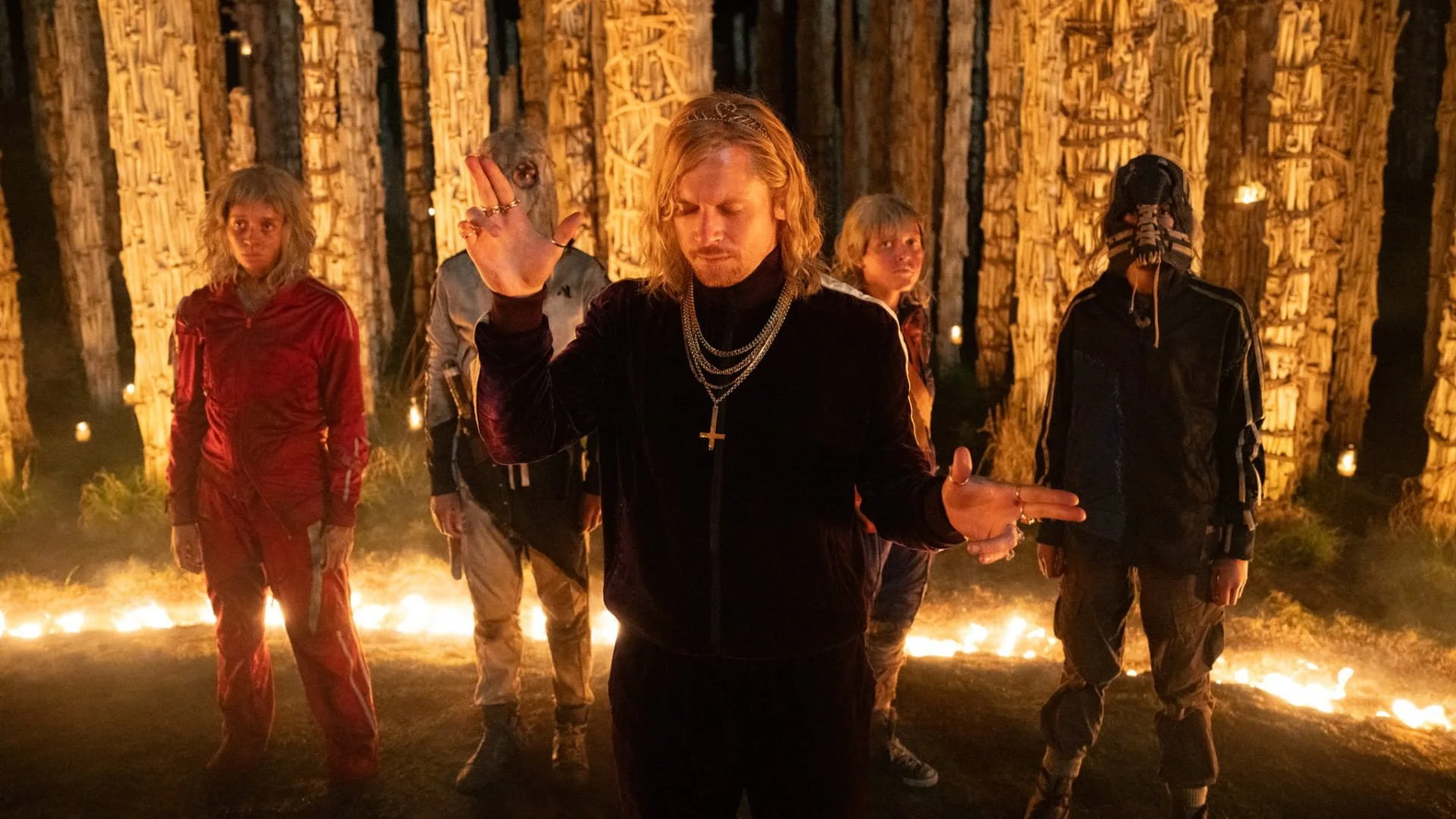Review: A Glitch in the Matrix (2021)
Are we living inside a computer simulation? A Glitch in the Matrix, from Room 237 filmmaker Rodney Ascher, tackles this question head-on, providing a pulpit for several individuals—all men—who believe they are living in a simulation to expound on the notion and discuss its spiritual and philosophical ramifications. While the “simulation hypothesis” has gained prominence in the last few years, especially after Elon Musk famously discussed its likelihood at a TED conference in 2016, A Glitch in the Matrix does not seek to provide an overview of the phenomenon or examine it from a sociohistorical perspective. Rather, it examines it from a philosophical perspective and allows the people who believe it to be real—as well as some key thinkers who’ve shaped its perception in the public discourse, specifically academic philosopher Nick Bostrum—to discuss it in deeply personal terms. The result is a documentary that is less an objective primer than a testament of a new religious movement.
For such an esoteric topic, it’s a fitting approach. What makes the film even more interesting is that Ascher tweaks the typical talking head-style to fit the subject matter. Ascher gives the four key interviewees who believe we’re living in a computer simulation—Alex LeVine, Laeo Mystwood, Paul Gude, Jesse Orion—digital avatars that make them look like strange robots or alien beings. This stylistic choice defamiliarizes the typical documentary interview style and offers an interesting visual variation on standard documentary formats. Most importantly, it places the unreality of what we’re watching front-and-centre, which plays into the philosophical arguments the men make.
Ascher also frames the film around a talk science-fiction novelist Philip K. Dick (writer of the stories that were adapted in film as Blade Runner, Total Recall, and Minority Report) gave in Paris in 1977 in which he lays out his “exegesis,” a hypothesis that our entire reality is a complex simulation created by a demon to deprive humanity of the means to learn from Jesus Christ and transcend the physical world. This framing device is critical, not only for the content of Dick’s speech, but also for the associations created by Dick’s presence, primarily in linking his outsized influence on modern science fiction in novels, television, and film with the simulation hypothesis itself.
The film suggests, but never outright says—as Ascher is careful to avoid any editorializing—that the simulation hypothesis is a direct result of movies, and one movie in particular: The Matrix. Thus, it’s only fitting that Dick is present in the film, as he was a forebear of this philosophical concept and his novels and stories were foundational influences on science-fiction entertainment generally and The Matrix in particular. This examination of the influence of The Matrix culminates in an interview sequence featuring Joshua Cooke, who we only hear in voiceover via telephone. Joshua is a paranoid schizophrenic who became convinced that he was living in a simulation after watching The Matrix dozens of times after its release. His newfound belief led him to test his theory by killing his mother and father and spawned the legal term “Matrix defense” during his murder trial.
This sequence in the film recreates a digital version of Joshua’s childhood home and moves around the home as he recounts the story, creating an eerie dissociation between the severity of what he’s telling and the video game-like presentation of the setting. The inclusion of Joshua’s story adds a fascinating wrinkle to the film’s presentation, as he serves as a warning for the potentially dire consequences that can result when a person starts to reorder their moral actions in response to their belief in simulation theory. As well, it shows how much of the theory dovetails with the experience of the mentally unwell—the idea that the world is an illusion is a common symptom of psychotic delusions.
The sequence featuring Joshua Cooke is undoubtedly the film’s peak, but the rest of the film is arresting and instructive for how it reveals the ways that people define their spiritual realities according to the vocabulary of their surroundings. While the film never explicitly makes this argument, it does imply that the central men in the film are simply applying a vocabulary specific to our modern era—that of computer power and science-fiction visions of the future—to their individual experiences of existential awakening. Because we live in a materialist culture defined by technology and computers in particular, these men can only view transcendence as a side-effect of some kind of technological breakthrough. But as is suggested during the opening minutes of the film, if they lived in the Middle Ages or the Early Modern Era, they simply would’ve shifted the vocabulary and definitions of their belief to match the material reality of their time period.
A Glitch in the Matrix never solidifies around a pro or contra argument regarding simulation hypothesis. It presents the case of its interviewees, probes the fascinating implications of their beliefs, and shows how movies have been foundational to the formation of these beliefs. It sometimes loses its narrative thread or reiterates a single point too many times—that it’s a tad muddled and overlong should not be surprising coming from the same filmmaker who made Room 237—but it’s provocative in a substantive way, forcing us to take a hard look at how we quantify reality. It may not have convinced me that we live in a simulation, but it has shown me that the men who do believe such a thing are reacting in uniquely human ways to the dissociative aspects of living in the modern world, and incorporating the new mythology of the era (primarily created through movies) into their cosmology. Thus, the film becomes a persuasive argument for the philosophical power of cinema and how stories shape our spiritual understanding of our everyday experiences.
7 out of 10
A Glitch in the Matrix (2021, USA)
Directed by Rodney Ascher; featuring Nick Bostrom, Joshua Cooke, Erik Davis, Alex LeVine, Laeo Mystwood, Paul Gude, Jesse Orion, Emily Pothast, Jeremy Felts, Chris Ware.



This mockumentary starring Matt Johnson and Jay McCarrol is a complex metafiction farce and a loving portrait of friendship and Toronto.